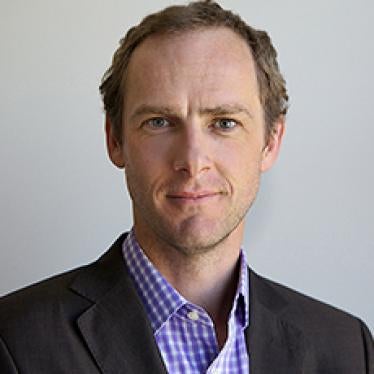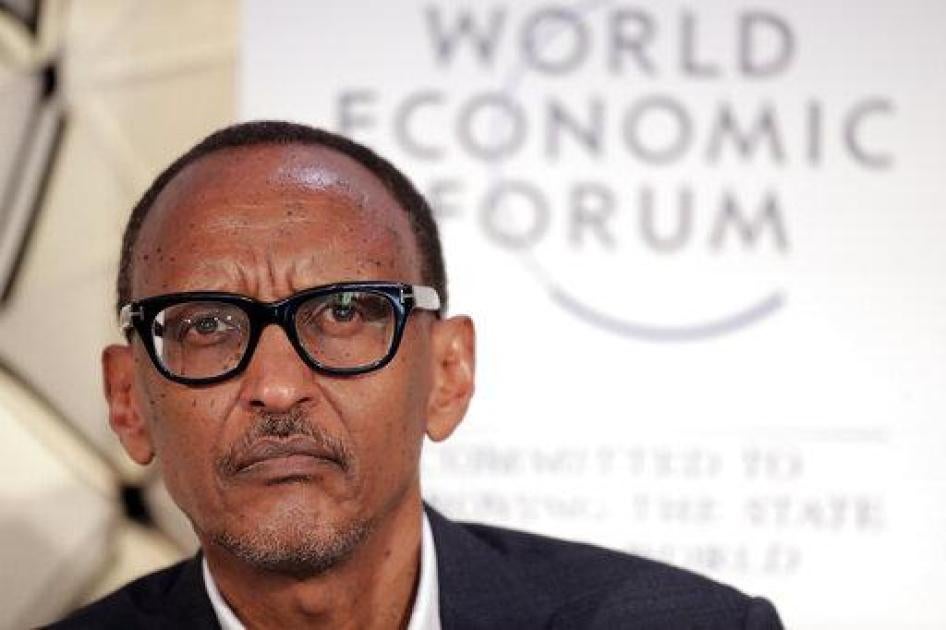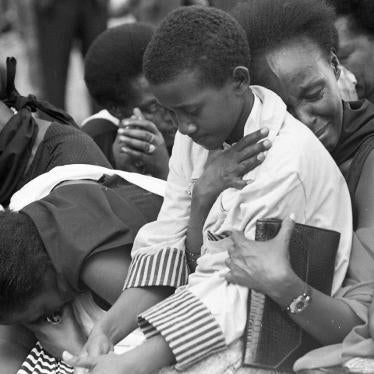This week, Rwandan President Paul Kagame sat down for a joint France 24 interview with the European Union’s development commissioner to discuss some of his country’s efforts to eradicate poverty.
But soon, the conversation – which took place on the margins of the European Commission’s European Development Days forum – became heated. Faced with tough questions from an independent journalist, Kagame’s discomfort was obvious. When pressed on the European Union’s 2018 report of “serious civil and political rights violations” in Rwanda, his tone turned outright hostile.
Kagame dismissed the report as “ridiculous,” and brushed aside questions about critics being killed, physically attacked, jailed, silenced, or forced into exile in the lead up to the 2017 presidential election. Our own research suggests summary executions, enforced disappearances, unlawful arrest and detention, and torture remain all too common in Rwanda. At one point, he accused those raising concerns about human rights violations of suffering from a “superiority complex.”
Rwanda is often touted as a model for the continent based on its bold development policies. The government, formed by a former rebel group, has practically rebuilt the country since it ended the 1994 genocide.
But of late, critics have raised eyebrows at the Rwandan government’s decision to spend hundreds of millions on a new conference center and to sponsor Arsenal, the president’s favorite Premier League football team. Furthermore, recent academic research and reports of increasing poverty and high child malnutrition rates have challenged the aid-dependent country’s impressive growth statistics.
Free speech – or the freedom to criticize the government or the ruling party – has been severely repressed in Rwanda. Yet a free press and access to information are key to achieving development goals and holding governments to account.
For this reason, peaceful and just societies – built on respect for universal and indivisible human rights – are central to the achievement of the UN’s development agenda. If Rwanda is serious about leading the way towards sustainable development, the government should make space for debate and criticism, rather than cherry-pick which rights to uphold and quash the rest.









